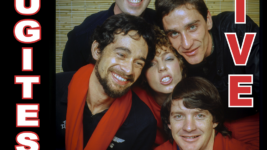THE GAFFA TAPES
28 Apr 2025
VIETNAM: THE NEW FRONTIER
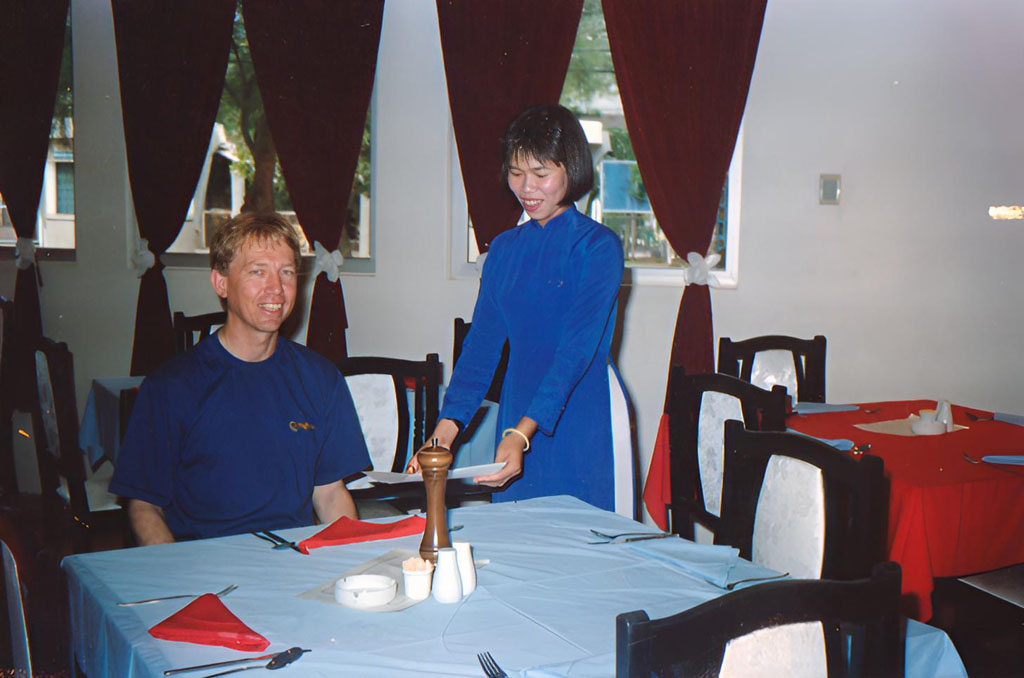
Subscribe to CX E-News
My return to Australia in 1986 after a four-year stint in entertainment in the Philippines brought about an emotional upheaval that left me with a feeling of isolation and detachment. This was augmented by the fact that the role of an entertainment manager in Australia was a horse of a different colour. In the American-owned nightclubs in the Philippines, I had to do everything from recruiting the bands, installing the sound and lighting equipment, mixing the audio, and training the staff.
Conversely, entertainment management in Australia was usually handled by someone with little or no technical or entrepreneurial skills, who simply liaised with entertainment and AV installation agencies and who carried a big bunch of keys so they could empty the poker machines every night.
I was suffering from a kind of reverse culture shock, and my attempt to return to normality led me to regress to my former day job of servicing fire extinguishers; this only lasted a few weeks before I was selling point-of-sale signage to fruit and vegetable merchants.
These were disastrous choices, so I decided to revive my PA hire business but on a much smaller scale. I went with lighter, smaller, and more powerful enclosures; however, I was largely shunned by the fledgling rock ‘n’ roll bands of that era who were still into the big speaker box spectacle, even though the outdated JBL 45/60 and W Bins only utilised 100W and 200W speakers.
I found my hire business relegated to the smaller event markets, such as wedding receptions and similar functions, and my niche market was with the Vietnamese community.
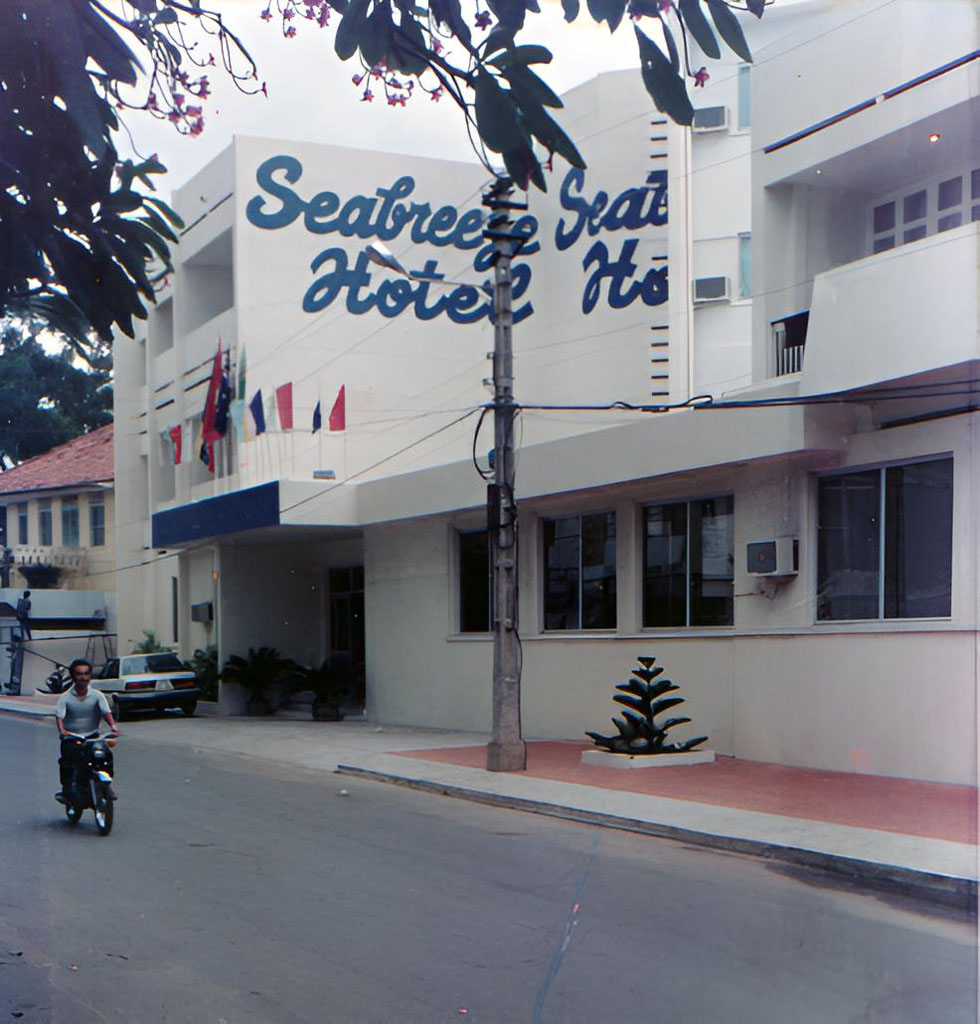
I learned a lot about the Vietnamese people’s appreciation of music, and in my delusional state of mind, I decided that I would travel to Vietnam to advance the rock ‘n’ roll industry there. I only had one contact in Vietnam, John, an Australian expat, who was the former owner of the 21 Club in Manila, a club I used to frequent and often do a couple of numbers on stage with the band. John had set up a hotel in Vietnam called the Seabreeze, which was in the southern province of Vũng Tàu.
I purchased a tourist visa from the Vietnam Consulate in Sydney, but not knowing the location of the Seabreeze, I flew to Manila to gather information from some of John’s former associates. Coincidentally, I met an Aussie, Michael, who had just returned to Manila after being under house arrest in Vietnam. His crime was staying in a non-government-approved hotel and using public transport, which the Communist government didn’t allow foreigners to use. Michael told me he was made to pay all the expenses during his house arrest at a five-star hotel until his US dollars ran out, after which he was deported. Michael gave me some Vietnamese language tapes and advised me to take a wad of single US dollars, which he said could buy a host of things in the country.
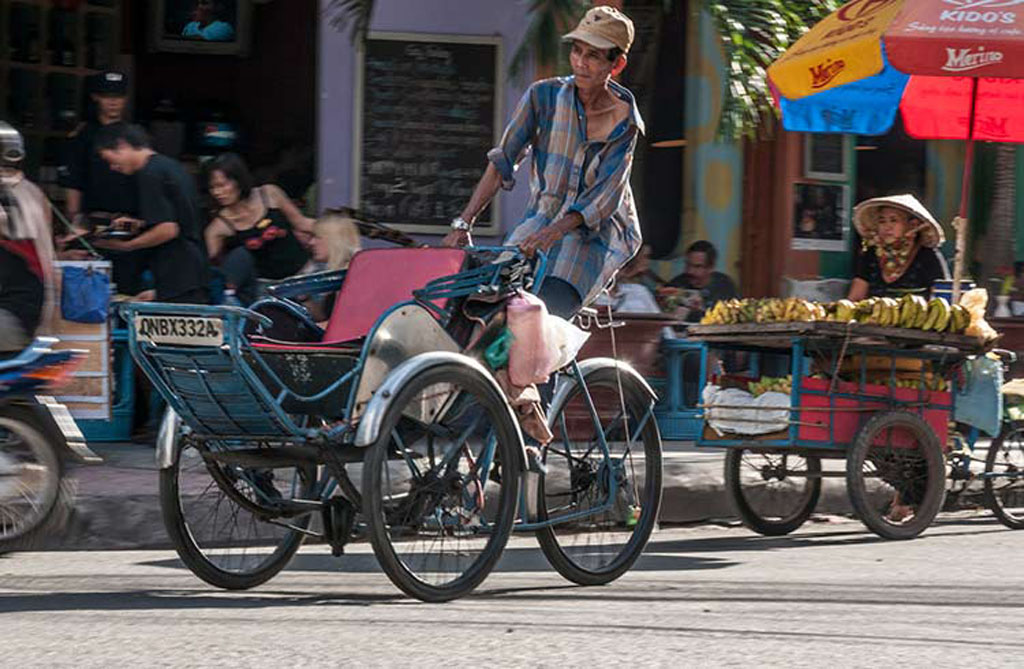
Arriving at Ho Chi Minh Airport (formerly Saigon) in the winter of 1989, I was taken aback at the sight of a large fleet of MiG-17 fighter jets parked on the tarmac, and I realised that Vietnam was still at war with Cambodia. “What am I doing here?” I thought.
A stony-faced female airport official dressed in a military uniform who x-rayed my luggage exclaimed, “You have video!” I thought she was saying I had a video camera, which I denied. “You have video,” she insisted as she unzipped my bag and produced a VHS tape, which she waved in my face. The tape was a recording of the recent rugby league grand final, which I was intending to present to John at the Seabreeze, anticipating that he would be hosting sports-hungry expat Aussie guests. The video was really meant to be a sweetener so John could help me find entertainment work in the country.
I was escorted by an official dressed in a military uniform to a room, where I was interrogated. Without viewing the VHS tape, the very annoyed official asked, “You use this?”
I tried to explain the purpose of the tape, but my explanation fell on deaf ears.
“You use this?” he angrily repeated. “If I find the Seabreeze hotel…”
“If?” he interrupted. “Yes, if I…”
“If?”
I decided to abandon the use of the word ‘if,’ and I passively tried to explain that a football match was hardly western propaganda, but the official again waved the VHS tape in my face, asking, “You use this?”
“No, mate, I won’t be using it.” I said. “I keep this,” he said.
“Ok, you keep it.”
I was made to pay $10 USD for a taxi to take me to the nearby hotel that was endorsed on my visa application. $10 USD may sound like a pittance today, but the same ride in Manila was around $1 USD. The hotel was a dump, so I didn’t check in, which immediately rendered me in breach of government regulations. I approached a cyclo driver in the street and asked him to take me to the Rex Hotel. I knew that this was a government-approved hotel, which had been a favourite haunt of US officers during the Vietnam War, and I knew it was expensive. “I take you for one US dollar,” he said, and he peddled me around the corner to the hotel.
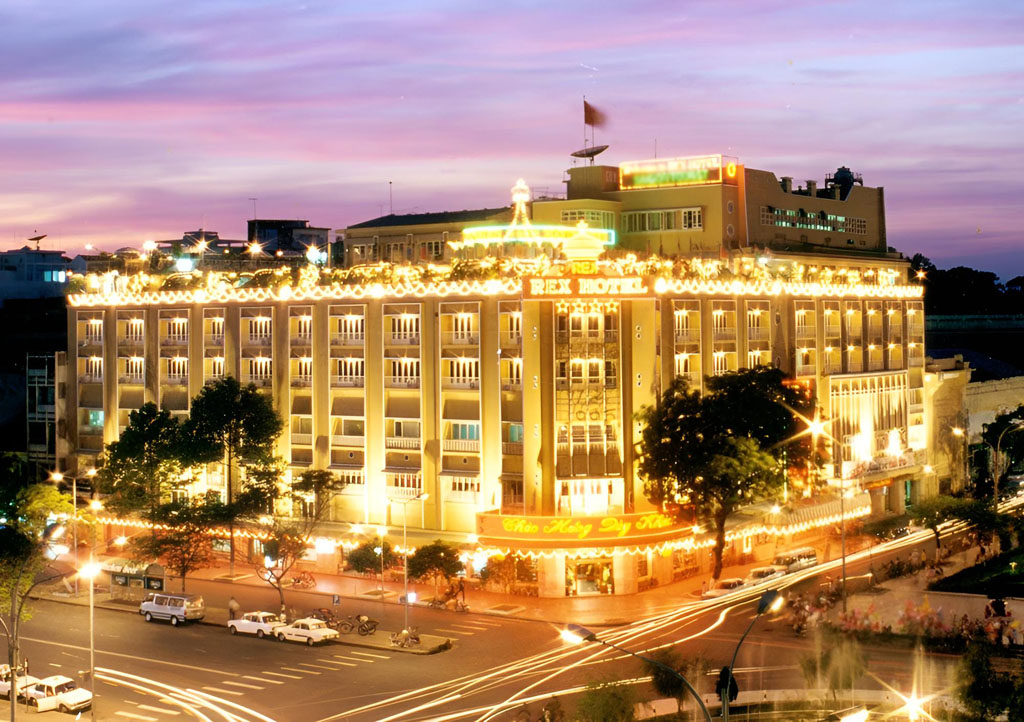
At the Rex, I sidled up to a group of European expats drinking at an upstairs bar. I was desperate for local information; however, they were all Russians who didn’t speak a word of English. After thumbing through my Lonely Planet guidebook, I took another cyclo to a nightclub that was listed as an expat’s bar.
After paying the cover charge, I discovered it was a disco for locals, and I was the only foreigner there. I had already savoured Vietnam’s Ba Muoi Ba beer (333) at the Rex, which wasn’t to my liking, so I ordered a Tiger beer. The waiter who brought the beer also asked me if I wanted a girl at my table, and I politely declined.
I hadn’t even finished my beer when a siren sounded and the house lights went on, and all eyes were on me. I thought the place was being raided, and I stood out like a clown in Chinatown. The waiter again approached the table to tell me that I had won some Tiger beer promotion. Yeah, right, I’d never even won the chook raffle at my local pub, so this had to be a scam. I decided to vacate the premises but was stopped at the exit. “Don’t forget your prize, sir,” said a doorman, who handed me a Tiger beer t-shirt. This shirt remained one of my most cherished possessions for the years that followed.
The government decree at the time was that foreigners present their passports to the police in every province they visited; however, the Rex was exempted from this rule because of its connection to the government, and it was the Rex that arranged my transport to Vũng Tàu. Since I was forbidden to use public transport, I was made to pay $60 USD for an air-conditioned passenger vehicle. The driver was a nice guy who, en route, asked if he could pull into a Honda Stop. These were ubiquitous along the highway, and I thought they were motorcycle spare parts shops. However, they were simply roadside food cafes largely catering to the plethora of Honda motorcyclists that congested the highways and city streets.
“I buy cây for my mummy,” said the driver. I thought he said cake, but on returning from the cafe, he placed something in the boot that rocked the vehicle.
“That’s some cake!” I thought. I was later to learn that cây is the term used for a dog for human consumption.
At the Seabreeze, John was quick to tell me that there were no venues interested in doing the kind of rock ‘n’ roll entertainment that I had envisaged. “You’re way too early,” he said. So, my tour of Vietnam became that of a tourist. My main haunt in Vũng Tàu was the Canadian Hotel (now called the Royal Hotel). Upstairs was a bar with a band, where, one evening, I was invited to stay back to help celebrate a staff member’s birthday party.
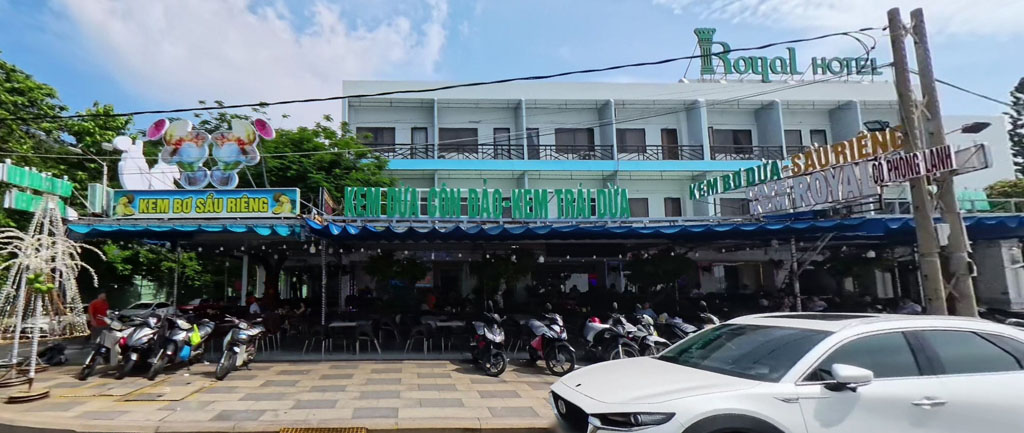
Once again, I became paranoid that I was about to be scammed. But my curiosity got the better of me, and I accepted. It was no scam, as drinks and food were provided free of charge. Another Australian tourist, who was an uncouth guest staying at the Seabreeze, was also invited to stay, and my only conversation with him was to tell him to get his feet off the food table.
Later that evening the curtains were drawn and the lights were dimmed. The staff put on some French music and danced in a type of ballroom fashion. This was, of course, frowned upon by the government, as the French colonialists had been ousted from the country in 1954 after the battle of Dien Bien Phu, but the surreal spectacle of that night stayed with me for many years.
Breakfasting at the Seabreeze Hotel the following morning, I was told that the uncouth Aussie had returned to the hotel on the prior evening and, in a drunken state, threw the hotel’s wooden statue of Buddha into the swimming pool. Vietnam is predominantly a Buddhist country, and it was no surprise that the hotel staff thus refused to serve him, and he was asked to leave the hotel.
The doorman at the Seabreeze arranged for me to hire a Honda step-thru motorcycle from a local so I could continue my tourist activities. At this juncture, I should point out that I was not a proficient motorcycle rider, having only ridden on a few occasions. I rode on the beach and around the streets of Vũng Tàu and even through the local market, where I heard the cry of, “You crazy, Joe.” I had a minor breakdown when the motorcycle chain dislodged from its sprocket, but a passing local motorcycle rider came to my rescue. When I’d stop at roadside cafes, the staff were always very friendly and very keen for information about Australia.

Gaining more confidence, I rode up Nho Mountain, where the 35-metre-high reconstructed statue of Jesus now stands. On the way down the mountain track, I took a wrong turn, which landed me in a military observation post. An armed soldier came running towards me shouting something, but I wasn’t in the mood for any conversation. As I quickly turned to head out, I narrowly missed a hand grenade lying on the ground. Back at the hotel, I was telling the story to a Brit guy at the bar.
“I’m not sure if the grenade was live or not,” I said.
“Mate, they don’t look like that after they’ve exploded,” he said.
Upon my return to Australia, I gave up my delusion of creating a rock ‘n’ roll venue in Vietnam, and I bought a 1962 Seeburg jukebox with the intention of hiring it out, but that’s another story.
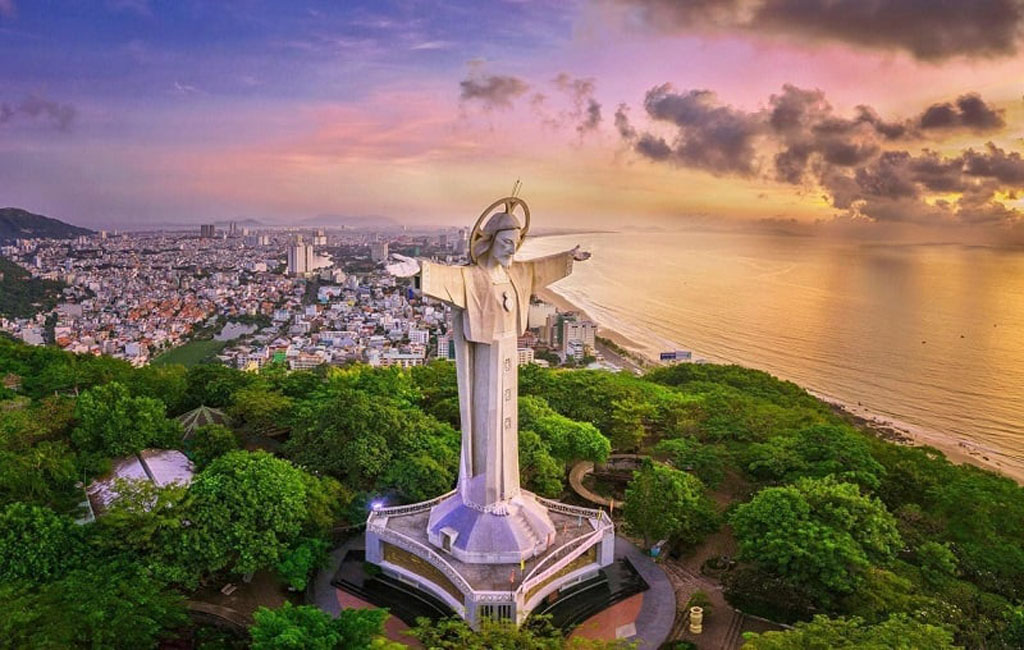
Subscribe
Published monthly since 1991, our famous AV industry magazine is free for download or pay for print. Subscribers also receive CX News, our free weekly email with the latest industry news and jobs.

